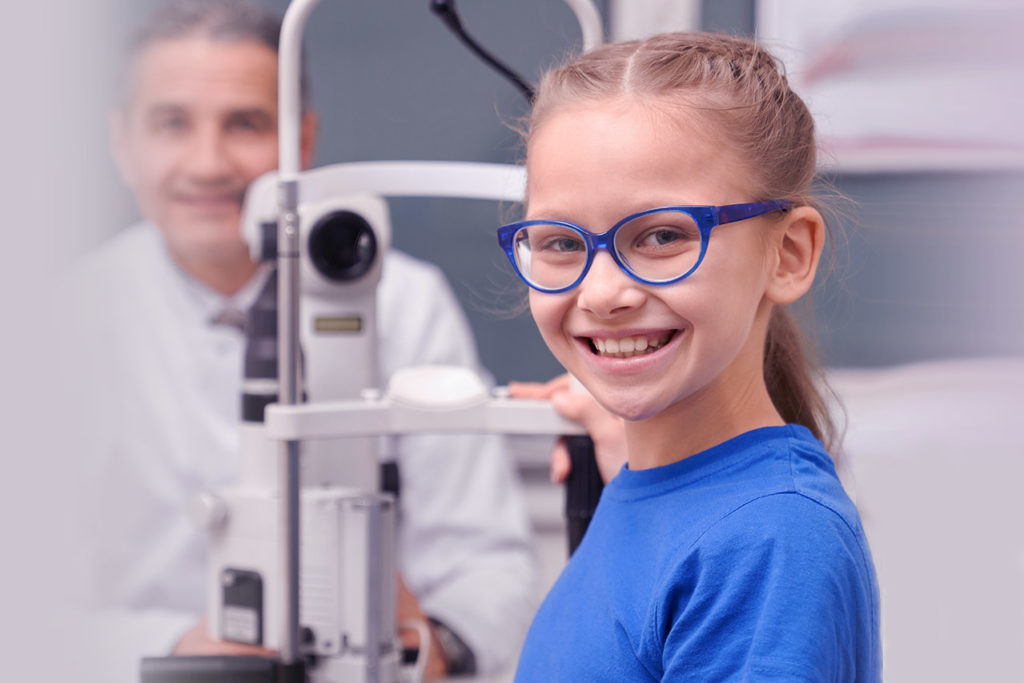Wondering if your child needs glasses?
Here are 7 signs to look out for.
Good eyesight is essential for all aspects of life, reading, writing, playing, walking, driving, among many other routine tasks and activities.
All children need clear and comfortable vision to meet the demands of school and enjoy the highest quality of life.
Here are 7 signs that it’s time to schedule an eye exam with your eye doctor.
1. Squinting
Have you noticed your child squinting their eyes to see an object or image in the distance?
If your child squints their eyes to see the TV or the board in the classroom, they may need glasses for refractive errors called myopia or astigmatism.
Squinting helps your child achieve clearer, sharper vision as it limits the amount of light that enters the eyes and focuses incoming light directly onto the center of the retina.
2. Headaches
Does your child complain of frequent headaches?
Children with farsightedness or astigmatism are very susceptible to headaches, especially after completing near vision tasks such as reading, homework, or computer work.
Headaches typically occur when the child’s eye muscles have to work extra hard to focus on the images in front of them.
3. Frequent eye rubbing
Does your child rub their eyes, especially while doing homework or studying at night?
Eye rubbing is a universal sign for tiredness, but if your child rubs their eyes while reading or focusing on a near image, they may have a vision problem.
Rubbing the eyes is a common practice among children who don’t have the verbal skills to communicate a problem with their vision, and instead try to rub the blurry vision away.
4. Sitting close to TV or screen
Does your child sit close to the TV screen or hold their phone or book right in front of their eyes?
Being in close proximity to an object or image eliminates the need to squint in order to see clearly, especially when myopia is at the root of the problem.
If your child is exhibiting any of these 7 signs, schedule an eye exam with an optometrist near you.
SEE RELATED: Eye Exams for Children
5. Closing one eye
Does your child often close one eye when reading or playing on the tablet?
This is often a sign that the eyes aren’t working together properly. In some cases, it is indicative of a refractive error, and in other cases, a binocular vision problem such as convergence insufficiency may be the cause.
Closing one eye enables the stronger eye to send a clear image to the brain, resulting in clearer vision.
6. Clumsy or poor coordination
Has your child’s teacher or sports coach reported that your child is ‘tripping or bumping into things’?
Does your child exhibit these behaviors at home as well?
Frequent tripping or bumping into objects or people can give your child a stigma of being clumsy, but oftentimes, they are actually suffering from a vision problem.
7. Reading difficulties
Is your child reading on grade level?
Do they lose their place while reading, skip lines, or use their fingers to keep them on track?
Refractive errors and other vision problems can make reading difficult— and affect a child’s overall academic performance.
How often do children need to have their eyes checked?
The American Optometric Association (AOA) recommends having your child’s eyes examined each year by an optometrist, beginning from 6 months of age.
A comprehensive eye exam will detect vision problems that basic vision screenings are unable to test for, such as farsightedness, astigmatism, convergence insufficiency, lazy eye, among others.
If your child is showing signs of a vision problem, schedule an appointment with an eye doctor near you.
LEARN MORE: Guide to Children’s Eye Exams
Whether your child needs glasses, contact lenses or other eyewear, an eye doctor will make sure your child has the tools to help them view life more clearly and comfortably.
Giving your child clear vision may just be the solution you have been searching for.

